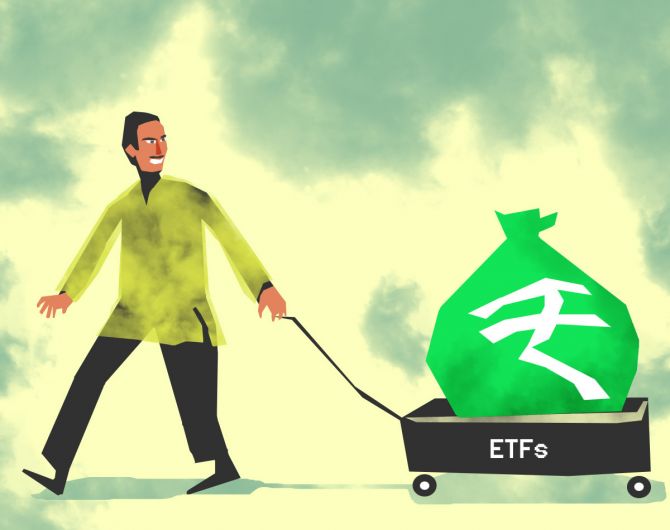Inflows into gold exchange-traded funds (ETFs), which manage a total of Rs 37,390 crore, have surged sharply in recent months.

This trend is likely to continue, especially after the reintroduction of long-term capital gains tax (LTCG), which is likely to attract smart money into mutual fund offerings amid a robust outlook for the yellow metal.
Smart money, also known as opportunistic flows, refers to strategic investments that are generally of a short-term horizon.
“The shorter holding period makes gold ETFs more relevant for the section of investors who are looking to buy and sell over a short period,” said Vishal Dhawan, founder and CEO of Plan Ahead Wealth Advisors.
According to the new tax rules announced in the Budget, gains from gold ETFs will qualify for the 12.5 LTCG tax if held for one year.
The LTCG benefit was brought back this year after it was removed in April 2023.
This time, the holding period for LTCG is lower than the 3-year requirement until March 2023.
“The inflows have picked up in recent months but it’s just a fraction of the physical gold market, which is estimated to be around Rs 3-4 trillion.
"The inherent advantages of the MF route coupled with the changes in tax structure and a positive outlook should lead to higher adoption of the ETF route going forward,” said Vikram Dhawan, head commodities and fund manager, Nippon India Mutual Fund.
In August, investments into gold ETFs surged to an all-time-high of Rs 1,611 crore.
Experts say the flow of retail investments could also pick up pace but this expectation hinges on the likelihood of the government pulling the plug on Sovereign Gold Bonds (SGBs).
They say that the additional interest offered by SGBs make them a more attractive option vis-a-vis ETFs.
“While gold ETFs may seem attractive due to their shorter LTCG holding period of 12 months, SGBs still remain a preferred option for investors.
"SGBs offer not only potential appreciation in gold prices but also provide a 2.5 per cent annual interest and tax exemptions on capital gains upon maturity," said Feroze Azeez, deputy CEO, Anand Rathi Wealth.
Dhawan said investors should avoid getting swayed by the lower holding period for LTCG taxation to approach gold investment from a short-term perspective.
“Gold as an asset class is not suited for a 1-year or 2-year time frame, given that its volatile. It is meant for the long-term,” he said.
The one-year LTCG holding period is only applicable to gold ETFs as gold fund of funds (FoFs) will qualify for the preferential taxation only after two years.
Rushabh Desai, Founder of Rupee With Rushabh, said that despite the tax disadvantage retail investors should prefer the FoF route.
“Since ETFs are traded on the exchanges, gold ETFs may not be the right option for retail investors, given that the pricing is subject to the demand-supply dynamics.
"A higher demand can push prices of the units beyond the value of the underlying asset.
"They can also be underpriced at times, leading to losses for investors who are exiting.
"Fund of funds (FoFs) are less prone to this risk,” said Rushabh Desai, founder, Rupee With Rushabh.
Gold FoFs inflows also go into gold ETFs as these schemes are feeder funds of ETFs.
Gold prices jumped to an all-time-high on Wednesday after the US Federal Reserve announced a 50 basis point cut in interest rate.
"We continue to maintain a 'buy' on dips strategy for both gold and silver, as we believe there could be a delayed reaction to this rate cut.
"According to the previous quarterly reports, we maintain the targets of Rs 76,000 on domestic front and $2650 on Comex," Motilal Oswal Wealth Management said in a report.












 © 2025
© 2025